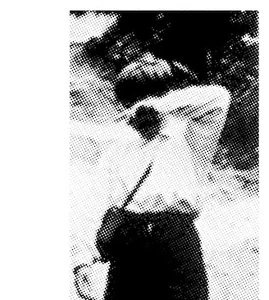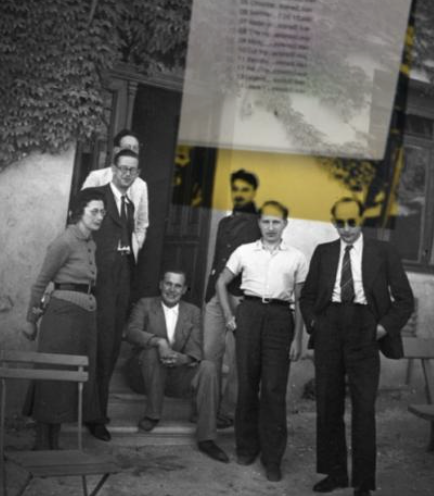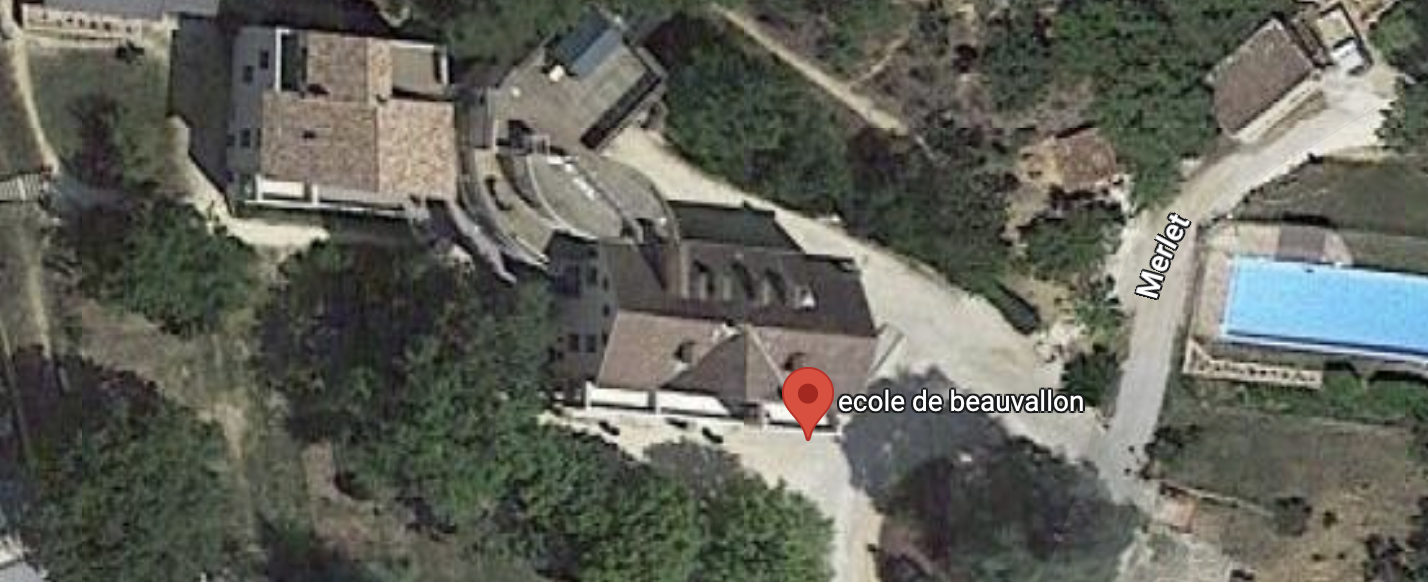Somehow I missed all the excitement, five years ago. From Bourbaki’s Wikipedia page.
In 2018, the American musical duo Twenty One Pilots released a concept album named Trench. The album’s conceptual framework was the mythical city of “Dema” ruled by nine “bishops”; one of the bishops was named “Nico”, short for Nicolas Bourbaki. Another of the bishops was named Andre, which may refer to André Weil. Following the album’s release, there was a spike in internet searches for “Nicolas Bourbaki”.
Google Trends for Nicolas Bourbaki
by u/HiLlBiLlYjOeL_ in twentyonepilots
With summer and retirement coming up, I’m all in for another Bourbaki riddle.
So, what’s going on?
Tyler Joseph and Josh Dun have weaved complicated storylines around the different albums of their band Twenty One Pilots (or TØP for short), each referring to a distinct era (the Blurryface-era, the Trench-era, the Scaled and Icy-ra, etc.), each having a different color scheme, characters and so on.
You can easily get lost forever in their sub-Reddit, or the numerous YouTube-clips and blogposts made by the ‘clique’ (as their fanbase calls itself). Perhaps the quickest intro in the TØP-world is this site.
The Bourbaki-group is important to the Trench-era, yet there are very few direct references in the songs. There’s the song “Morph” (lol!) containing:
He’ll always try to stop me, that Nicolas Bourbaki
He’s got no friends close, but those who know him most know
He goes by Nico
He told me I’m a copy
When I’d hear him mock me, that’s almost stopped me
So Nico=Nicolas Bourbaki, and there’s the song “Nico and the niners”
starting off with:
East is up
I’m fearless when I hear this on the low
East is up
I’m careless when I wear my rebel clothes
East is up
When Bishops come together they will know that
Dema don’t control us, Dema don’t control
East is up
and that’s about it.
We’ll cover Dema and the Bishops in later posts, but for now remember the mantra “East is up”, which supposedly indicates the direction of escape from the Bishops and the city of Dema.
A few months before the release of Trench, a mysterious website appeared, containing letters from someone called ‘Clancy’ and some pictures and gifs. One of these pictures was soon found out to be part of an iconic photo of Andre Weil.


This caught the attention of the ‘clique’ because another picture indicated that the name of one of the Bishops was Andre.
Poor Andre was credited for just two things he managed to do : he founded a secret group of mathematicians, called Nicolas Bourbaki (important because another Bishop’s name was ‘Nico’) and he invented the symbol $\emptyset$ for the empty set (important because TØP used it since the Blurryface-era). I guess most mathematicians will remember Andre Weil for other things.
The clique-consensus seems to be that the girl next to Andre (some even thought it was a boy) is his daughter Sylvie Weil.
If you ever read her novel Chez les Weil you’ll remember that Sylvie did have from a very young age the same exuberant hairstyle as her aunt Simone Weil. So no, she’s definitely not Sylvie.
I’ll save my theory as to where and when this photo was taken, who the girl next to Andre is, and how this picture was used later on in TØP-iconography, for another post.
For now, I just want to point out one tiny detail: the girl is shielding her eyes from the blistering summer-sun, and shadows are falling from right to left.
Got it? Yes: East is up!
The Bourbaki-hype intensified when Tyler Joseph tweeded on August 19th, indicating that a new Album called ‘Trench’ was coming up:
finally looking at mastered files.
album finished.
Trench
||-// pic.twitter.com/xrN0cgbymd— tyler jøseph (@tylerrjoseph) August 19, 2018
Again, there’s a lot more to say about this tweet, but for now look at the desktop-image. It’s part of one of the most known Bourbaki images of all time (also featuring on their Wikipedia page): the Dieulefit 1938-congress (which we discovered to be taken at Beauvallon).

(Left to right: Simone Weil, C. Pisot, Andre Weil, Jean Dieudonne (seated), Claude Chabauty, Charles Ehresmann and Jean Delsarte)
Ah, you spotted it too? We’ll come back to this, and the clique made even more surprising discoveries wrt this picture.
You see, we’ll have a lot of ground to cover, so let’s stick to the “East is up” motto,for now.
Via Google maps you can check that the exit-door in the picture is located to the East side of the main building of the Ecole de Beauvallon.

All Bourbakie-congress followers are outside, so does this mean they’ve escaped Dema? Are they now Banditos (whence the Yellow-background-color)?
If you’ve never heard about Banditos or te relevance of the color Yellow, we’ll cover that too.
There’s another ‘East is up’-side to the Beauvallon-story. For this we have to recall some of the history of the spiritual father of the B-gang, General Charles-Denis Bourbaki.

In the Franco-Prussian war of 1870-71, he was given the command of ‘armee de l’Est (yes, the ‘East’-army!), a ramshackle of ill-trained men.
After some initial successes they suffered defeat in the battle of Lizaine and were forced to escape to Switzerland (Yes: East!) where they were disarmed, and treated for their injuries (this was one of the first cases of the International Red Cross, and is remembered in the Bourbaki Panorama in Luzern).

For clique-people: Red cross & Red architecture of the Boubaki-panorama = color of the Bishops.
Anyway, the important fact is that General Bourbaki had to escape to the East.
During the Bourbaki-congress in Beauvallon in 1938 a similar situation occurred. From Andre Weil’s The Apprenticeship of a Mathematician (page 123-124):
In 1938, Bourbaki held a congress in Dieulefit, where Chabauty, who had joined the ranks of the Master’s collaborators, had familie ties. Elie Cartan graciously joined us and took part in some of our discussions.
This was precisely the time of the Munich conference. There were sinister forebodings in the air. We devoured the newspapers and huddled over the radio: this was one Bourbaki congress where hardly any real work was accomplished.
By the time I had resolved that, if war broke out, I would refuse to serve. In the middle of the congress, after confiding in Delsarte, I thought up some pretext or other and left for Switzerland.
But the immediate threat of war soon seemed to have dissipated, so I returned after two days.
So, there’s a remarkable analogy between General Bourbaki’s escape to the East in 1871, and Andre and Simone Weil’s flight to the East at the time of the Munich agreement.
Clearly, the ‘East is up’ mantra is not the only reason why Tyler Joseph used these two Bourbaki-related photos in his narrative, but it illustrates that none of these choices is arbitrary.
I think Tyler knows a lot about Bourbaki. His knowledge about them goes certainly deeper than that of the average clique-member (who state that Bourbaki was a group of mathematicians trying to prove God’s existence, or that there where exactly nine Bourbaki founders, corresponding to the nine Bishops of Dema).
But then, TØP never corrects erroneous clique-statements, every fan-theory is correct to them. In fact, they see the interactions with their fanbase as a collective work in storytelling: they pose a riddle, the clique proposes various possible solutions, and afterwards they may use one of these proposals in their further work.
Here’s an interview making clear that Tyler knows a lot more about Bourbaki than most people (1.50 till 4.40)
Interviewer: “How far are you into a Wikipedia wormhole when you come across this? (the Bourbaki group)”
Tyler: “No, no THEY named their group after Nicolas Bourbaki”
Interviewer: “but there is no Nicolas Bourbaki, right?”
Tyler: They named their group after Blurryface.”
Interviewer: “Even though it was the 1930″s?”
Tyler: “Yeah.”
Interviewer: “So how does it relate?”
Tyler: “its EVERYTHING and at the same time, has nothing to do with it”
Interviewer: “See I’m no good at math, this is difficult for me.”
Tyler: “Math?! *laughs* Math has nothing to do with it… and yet it has everything to do with it.”
Okay, in the next couple of posts I’ll use the little I know about the Bourbaki group trying to make sense of the Trench-era narrative.
In this series:
You are retiring?!?
I’m 65, which is the mandatory retirement age for professors in Belgium.
In the States there is no mandatory retirement. In my department we have many faculty who are over 70, and one or two who are over 80.